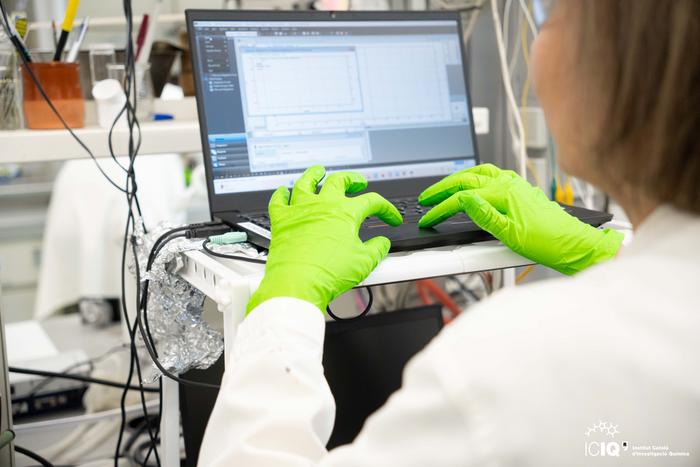On September 30, 1845, Michael Faraday wrote in his diary “Considering the nature of the relation between magnetic and electric forces, I think it must be some effect produced which magnets and other forms of apparatus and the progress of our knowledge will enable us hereafter to develop”. Many years later, the relation and synergy between magnetic and electric forces remain intriguing researchers. One of the most novel magneto-electric effects has been found in electrochemistry, where the direct impact of an applied magnetic field to enhance the kinetics of electrochemical reactions is becoming a hot trend in the field. A controversial observation that is still poorly understood.

Credit: ICIQ
On September 30, 1845, Michael Faraday wrote in his diary “Considering the nature of the relation between magnetic and electric forces, I think it must be some effect produced which magnets and other forms of apparatus and the progress of our knowledge will enable us hereafter to develop”. Many years later, the relation and synergy between magnetic and electric forces remain intriguing researchers. One of the most novel magneto-electric effects has been found in electrochemistry, where the direct impact of an applied magnetic field to enhance the kinetics of electrochemical reactions is becoming a hot trend in the field. A controversial observation that is still poorly understood.
Researchers at ICIQ have published this month an study that shows and confirms, beyond any reasonable doubt, the direct effect of an external magnetic on the reaction mechanism of the oxygen evolution reaction (OER), in particular during water electrolysis to produce green hydrogen. In more detail, the magnetic field favours a larger accumulation of the active NiOOH species leading to faster OER reaction kinetics at the electrode surface.
This work has been published on APL Energy and has been done by the groups of Prof. J.R. Galán-Mascarós, Prof. Núria López and Dr. Bahareh Khezri, in collaboration with the Institute of Advanced Materials (INAM). “Since the discovery of this phenomenon, there has been many reports on the magneto-electrochemical enhancement, but none of them was actually identifying its origin from experimental data. Our results are pointing towards its microscopic origin at the active site of the catalyst, opening interesting possibilities for further optimization and exploitation” explains Prof. Galán-Mascarós. “These findings underscore the transformative potential of incorporating magnetic fields in electrochemical processes, offering a novel approach to overcoming the limitations of traditional electrocatalytic methods,” adds Dr. Khezri.
In this study, it has been investigated the effect of magnetic fields on electrocatalytic OER using two powerful techniques. As explained by Dr. Khezri “the use of electrochemical impedance spectroscopy and spectro-electrochemical analysis under operando conditions have provided concrete evidence of this effect.”
“The combination of complementary techniques has been very powerful to understand the evolution of the catalyst once the magnetic field is applied. So we played with magnetic, optical and electrical stimuli all at once! This was possible thanks to the different teams working together,” concludes Prof. Galán-Mascarós.
Journal
APL Energy
DOI
10.1063/5.0179761
Method of Research
Experimental study
Article Title
Experimental evidences of the direct influence of external magnetic fields on the mechanism of the electrocatalytic oxygen evolution reaction




